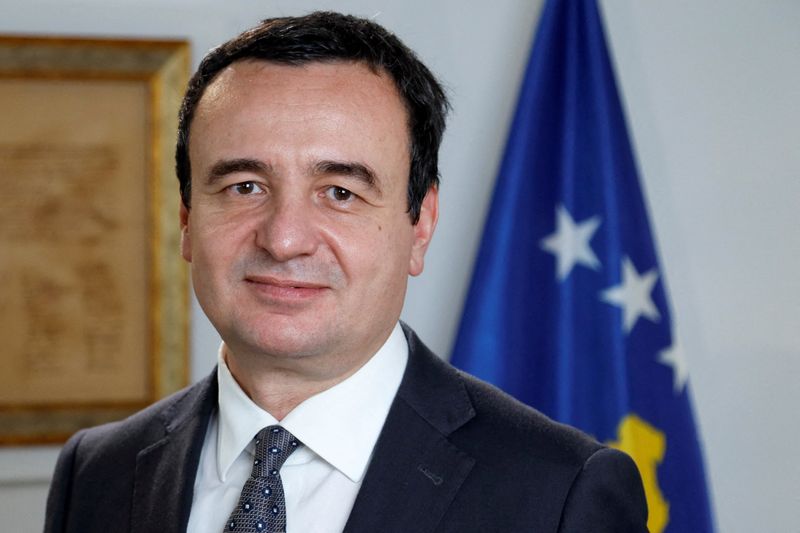By Fatos Bytyci
PRISTINA (Reuters) -Kosovo has postponed for another 48 hours its plan to fine drivers who continue using Serbian-issued car license plates, after a U.S. request for a delay due to the West's fears that fines may trigger ethnic violence.
The dispute over licence plates has stoked tensions for almost two years between Serbia and its former breakaway province, which declared independence in 2008 and is home to a Serb minority in the north that is backed by Belgrade.
"I have talked until very late last night with the U.S. ambassador to find a possibility (for a deal) without undermining the constitutionality but at the same time not to allow the threat to peace and stability," Kosovo's Prime Minister Albin Kurti said on Tuesday.
Around 50,000 ethnic Serbs who live in Kosovo refuse to recognise Pristina's authority, and still consider themselves a part of Serbia. Belgrade has said it will never recognise Kosovo's independence.
Hundreds of police officers, judges, prosecutors and other state workers from the Serb minority quit their jobs this month after Pristina ruled that local Serbs must finally replace car plates issued by Kosovo Serb municipal authorities, loyal to Belgrade, with Kosovo state ones.
Kosovo police had said earlier that fines were supposed to be issued from 8 a.m. local time (0700 GMT) on Tuesday, and would affect around 10,000 drivers.
Pristina and Belgrade failed to reach a deal on Monday following emergency talks mediated by the EU, with Brussels warning of an "escalation of violence" if the plan was to go ahead.
EU foreign policy chief Josep Borrell, who chaired the talks, blamed mainly Kosovo for rejecting an EU proposal on how to resolve the dispute.
Borrell's spokesperson Peter Stano said the talks with both parties will continue in the next two days.
"If the EU accession is the ultimate objective of Kosovo and Serbia, to which they have both committed, we expect them to also act accordingly," Stano said.
The U.S. ambassador to Serbia Christopher Hill said the EU has made it clear it would take more than 48 hours to find a solution. "The EU has made it clear that it would like to see another 365 days," Hill added after he met Serbia's President Aleksandar Vucic, asking him to continue constructive engagement in the negotiating process.
Opposition in Pristina has also blamed Kurti of jeopardising relations with the United States as Kosovo's biggest ally.

Kurti has said he is more interested in reaching a final accord with Serbia where both countries will recognise each other as independent states.
NATO, which has around 3,700 peacekeepers in Kosovo, said it was ready to intervene should the security situation be threatened.
